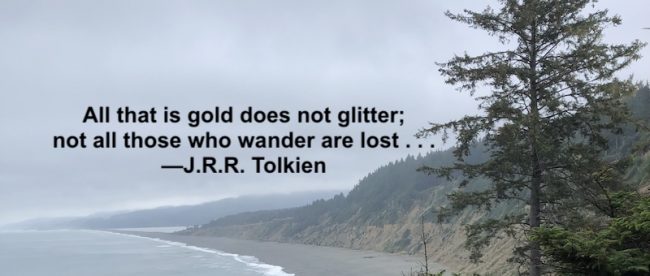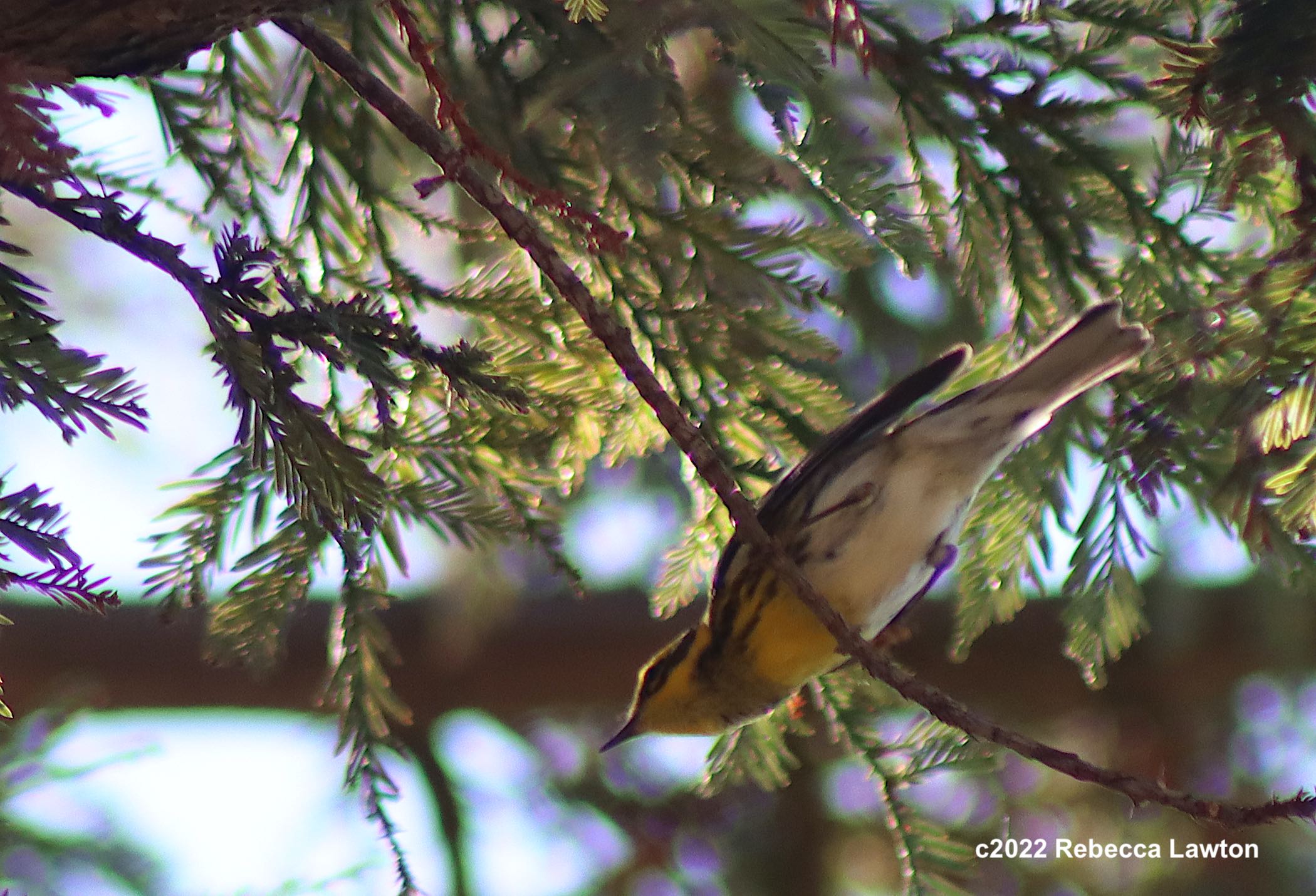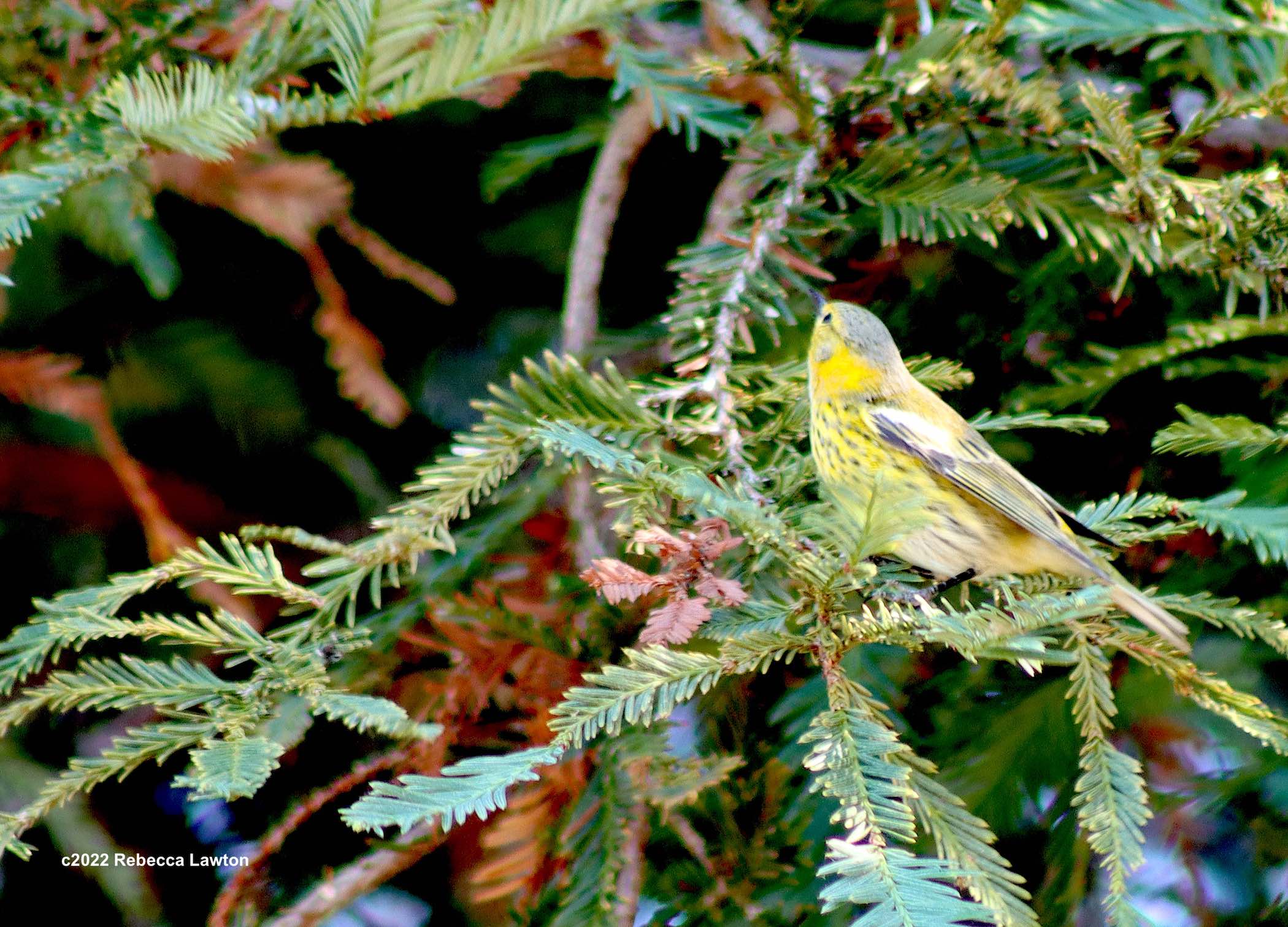Accidentals

Autumn is a special time of year, when a smattering of wood-warblers from east of the Rockies wander to the Pacific coast. And so I and my friend and birding partner David go looking for some of these accidentals.
The search is fun in the extreme, and a great way to enjoy the outdoors.
Warblers favor streams, springs, ponds, marshes, forested areas—alive places . . . To search for warblers is to stand among cottonwoods, willows, and oaks, watching with all your might for a flash of color from a small being who’s come for a drink or is chasing down mayflies or mosquitoes.
(from The Oasis This Time: Living and Dying with Water in the West, Torrey House Press, 2019)
Hikers passing by (as we’re standing with binoculars aimed at various types of foliage) often ask what we’re searching for.
“Wood-warblers from the east coast,” David answers. “They shouldn’t be here.”
They’re windblown wanderers, some might say lost. In birders’ parlance, they’re vagrants. Or accidentals.
Right now the warblers should be working their way south along the eastern front of the Rockies in good snowbird fashion. Instead, strong northeast winds related to a monumental hurricane season on the Atlantic seaboard have diverted some migrants to the Pacific coast.
(from The Oasis This Time: Living and Dying with Water in the West, Torrey House Press, 2019)
When I first learned about accidental species many years ago, I was horrified. They were so far from home. How would they get back to their communities to breed? What the heck was wrong with them? Was something off in their brains?
One of the hikers wonders these same sorts of things about the Cape May warbler we’re looking for. She asks how the vagrants will find potential mates.
“Well, they won’t,” David says. “The smart ones will follow the coast. Others will just fly out to sea.”
“They’re the end of the line,” I add, perhaps too dramatically, and the woman gasps.

Some research shows that vagrant birds might actually be pioneers, expanding their range in small numbers.
(Link: Scientific American on vagrant birds as portends of climate change.)
But as explorers, they’re not alone. Accidentals in musical parlance are tones played outside of a song’s key. They’re notated with sharp and flat signs (♯ and ♭) and can change measure to measure.
The music wanders, but it doesn’t get lost. It explores, you know? Then it returns to the melody, much . . . deeper. It dives in more than if it hadn’t strayed. Like the rewards are greater for all that searching. The sweetness is sweeter, or shininess shinier . . .
(from “The Wish,” Steelies and Other Endangered Species: Stories on Water, Little Curlew Press, 2014)


Hey Becca,
Very nice piece on the warbler-wanderers. I should hook you up with my brother-in-law, Dan. Since he retired many moons ago he’s become a full-fledged birder. He is currently in New Zealand on the trail of a rare, local bird. He takes fantastic photos of his subjects, as well.
Mike, that is so cool. I hope Dan finds his bird. Birding does capture the hearts of young and old, and I’m so glad to hear he’s finding it so alluring in retirement. I’m often out there looking among retirees, kids, working folk, worldwide birders, and even some having Big Years countywide. Seeing our beautiful avian friends has become a mission for many.
Your comment reminded me to add a few more links to the post for both global and local birders, as carbon-neutral birding is so important now. It was something David and I discussed on our way home — ways to offset not only the day’s trip but also the longer tours we take looking for exotic birds. The birds need it from us now more than ever.
This is such a great quote, from https://lowcarbonbirding.net/.
“This is not the end of travel, but we are going to have to change how we do it, how far we go, for how long and for how often. I think we are entering an era of far fewer, perhaps longer trips, with many more of them taken closer to home or overland.” – Ed Gillespie
Great to hear from you! Keep a-going! Becca